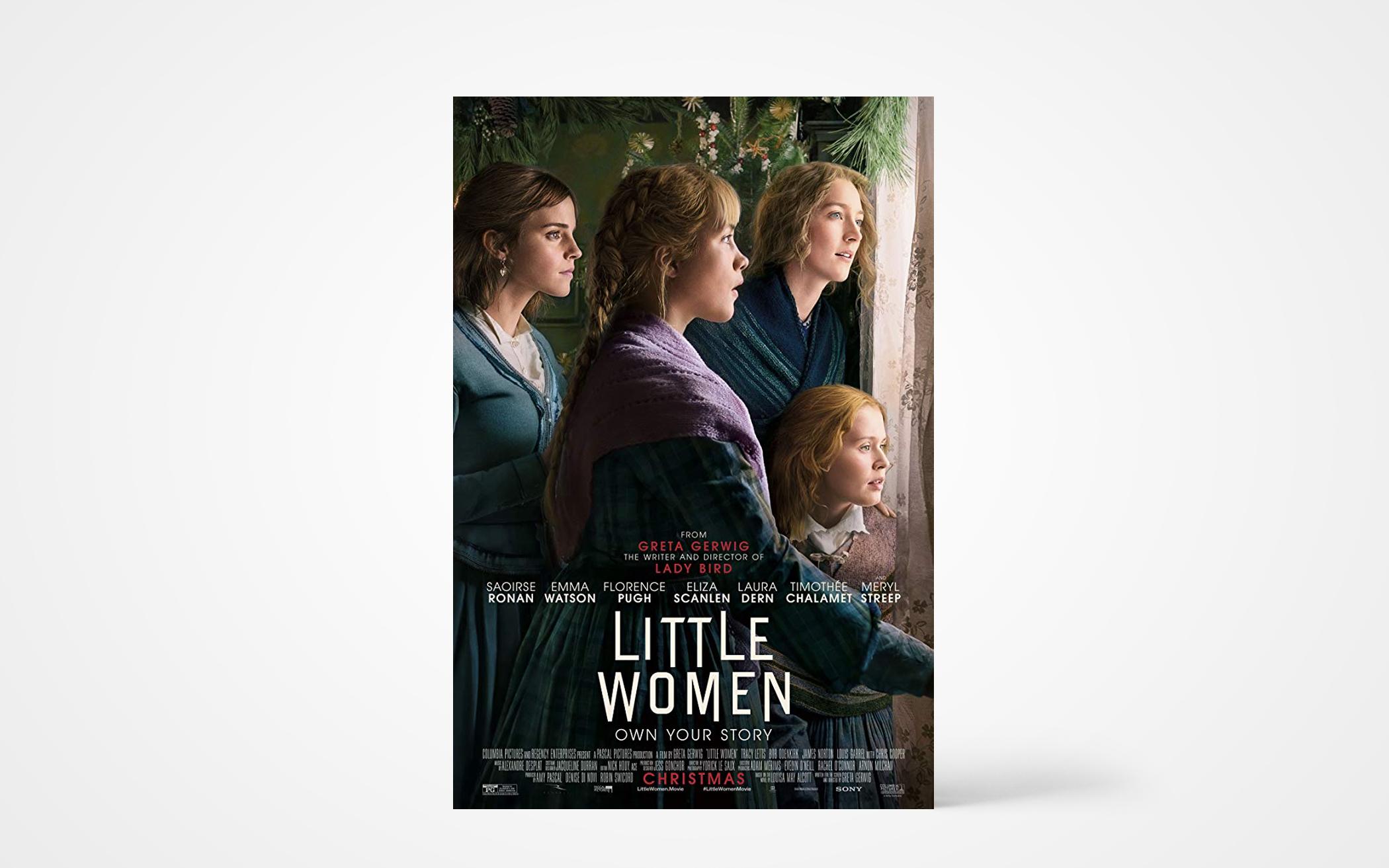I have been a devoted fan of Little Women—the abiding 1868 novel by Louisa May Alcott—for decades. It is, next to Anne of Green Gables, my very favorite book, a book I revisit every few years and from which I draw much comfort and inspiration. I loved the 1994 movie version starring Winona Ryder as Jo March—that movie is chicken soup for the soul for me and millions more.
I was a bit worried about what director Greta Gerwig (Lady Bird) would do with my treasured sisters March—Meg, Jo, Beth, and Amy. Would she shellac it with modernism as Moira Walley Beckett did with Anne with an E?
I fretted in vain. Gerwig and company have delivered a vigorous, poignant and loyal version of the immortal novel. Sure, Gerwig played around a lot with the chronology of the book, but she didn’t mess around with characters or events.
While the book itself is told chronologically from the time the March sisters are young girls to years later when we witness them as “Good Wives,” this movie’s timeline jumps forward and back and forward again.
Many people, especially those who don’t know the book’s sequence as intimately as I do, found this disorienting and even confusing. I can agree to a point—at times I found myself trying to figure out where we were at in the story. But overall, the reordered timeline gave the telling a brisk pace and effervescent energy.
Moviegoers meet heroine Jo (a perfectly cast Saoirse Ronan), then, as a writer in New York, trying to make a living as a governess while selling stories to magazines. As the movie progresses, we gain insight into the real-life author—Alcott—who modeled Jo after herself and her own obstacle-pitted ascent toward success. We know now that Alcott, happily single her whole life, balked at marrying off Jo. The ending of the movie plays with this possible outcome. What if she had refused to give her character Jo’s hand in marriage to the most-worthy Professor Bhaer (Louis Garrel)? (My other complaint—my chief complaint—is that a Friedrich Bhaer, a German in the book, was portrayed here as a Frenchman. Quelle Horror!)
If Alcott had refused this, we would not have Little Women today; that is clear. And this movie gives us a gorgeous peek into what it could have been like for Jo to see her novel manuscript come to life as a bound book. (The crafting of Jo’s book from handwritten manuscript to bound tome is a treat for book nerds.)
The riveting Ronan as Jo is joined by family-minded Meg (Emma Watson), lovely, doomed Beth (Eliza Scanlen), and creative, ambitious Amy (Florence Pugh). Ronan and Pugh are rightfully nominated for Best Actress and Best Supporting Actress Oscars for their enthralling performances.
Much has been said about casting the young-looking Timothée Chalamet as Laurie, but he is the right age—24—and brought a tenderness and vulnerability to the role that has been lacking in other portrayals.
Little Women has always been a feminist book—shockingly advanced in terms of bucking expectations placed on the girls and women of 1868. Gerwig’s rendition is no more or less equitable than its source material.
Really, it’s the story of four young women growing into who they are meant to be, trying to shed false selves and belong in the world. For two blissful, emotional hours, we watch them do just that, and marvel anew at their becoming. (Columbia Pictures)
About the Author
Lorilee Craker, a native of Winnipeg, Man., lives in Grand Rapids, Mich. The author of 16 books, she is the Mixed Media editor of The Banner. Her latest book is called Eat Like a Heroine: Nourish and Flourish With Bookish Stars From Anne of Green Gables to Zora Neale Hurston.

